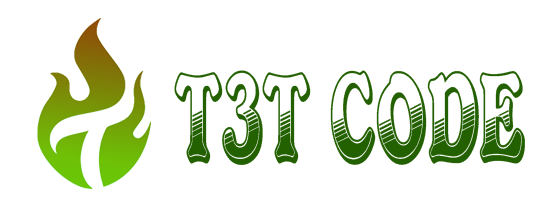Chưa có sản phẩm trong giỏ hàng.
Tin tức Tổng Hợp
Optimize Your Google Ads Campaigns with Keyword Match Types
As of July 2021, Google was the most used search engine in Malaysia (98.23%), and it will probably remain on top for the next decade or so. Businesses, small and large, must leverage that information to grow and outshine other competitors, especially on a search engine results page (SERP).
Google Ads (previously known as Google Adwords) are undeniably the most common paid ads tool used in Malaysia. However, without optimizing your campaign using the right keyword match type, it can potentially lead to low conversion rates and a wasted advertising budget. Conducting thorough research on Google Ads’ keyword match types and how it triggers user search queries can exponentially boost your PPC campaigns to gain brand awareness at opportune times.
Exact Match Type
This aptly named exact match keyword type is the most specific type out of all the Google Ads’ keywords. They are primarily used by marketers when there is a clear-cut intention to increase website traffic and have a low budget to utilize. Exact match keywords will only attract a minimal audience but with the highest relevance. However, with that said, exact match types may be the most challenging among all match types to master as it will require loads of past campaign performance data.
How does it work?
Let’s say, if you target the keyword ‘[white shirt]’ (with brackets), your ads will only be shown when a user searches for the exact phrase ‘white shirt’ or an extremely close variant. Close variations may include singular/plural forms (white shirts), misspellings (whitr shirr), those with the same meaning/intent, with prepositions (with white shirts), as well as in different orders (shirt white).
Broad Match Type
Broad match keyword types are the default match type used on Google Ads. Your ad would only reach the top-of-the-funnel audiences or even just random individuals that may not even be interested in the advertisement at all. Unless your goal is to maximize impression values or as a way to find new potential keywords, broad match types are a waste of time and can quickly go way over your budget.
How does it work?
For example, if you have written ‘white shirt’ (without any symbols) as your broad match phrase, your ad would pop up whenever someone searches for ‘types of shirts’, ‘basic colour shirts, ‘minimalist fashion’, or any other widely related searches. Searches may include typos, abbreviations, as well as synonyms.
Broad Match Modifier Match Type
The broad match modifier type allows you to exercise more control over its wide reach of audience. However, as with the broad match keyword type, this keyword match type will potentially bring in irrelevant traffic that rarely converts to anything substantial.
How does it work?
If you target ‘+white +shirt’, your ads may be shown when a user’s search query contains relevant variations to your key phrase ‘white shirt’ such as ‘women’s blouse’ or ‘collar tee’.
Phrase Match Type
Marketers that want a high degree of control over the search query should opt for this keyword match type. The phrase match type is even more specific than the modified broad match but less so than the exact match type. Commonly used when there is a low to middle budget available to maximize your ad’s return on investment (ROI).
How does it work?
For example, you’ve added in ‘white shirt’ as your phrase match keyword; your ads will now be shown to specific search queries that either contain the exact keyword or to phrases that include the targeted keyword. For example, ‘buy quality white shirt online’ or ‘how to style white shirts’.
Note that if there are words in the user’s search queries that appear in the middle of your keyword, i.e., ‘white graphic designs on shirt’, your ads will not be triggered.
Negative Keywords Match Type
Negative keyword match types help you redirect only relevant customers to your ad and prevent irrelevant ad clicks. Negative keywords prevent your ad from getting shown to users who’ve searched for keywords that you have specifically excluded in your campaigns. Pair this keyword match type with the broad match, and you’ve got yourself a large pool of potential customers.
How does it work?
Let’s say your brand’s target audience is those with higher spending power; adding in ‘-cheap’ or ‘-affordable’ as your negative keywords will help you narrow down specific searchers and potential customers. However, keep in mind that it won’t match with close variations or typos.
Now that we’ve gone through the types of keywords in Google Ads, you may wonder which match type can help your PPC campaign obtain a higher ad rank. Will Google’s default match type outperform other match types? Unfortunately, no one keyword match type is the be all end all solution to your marketing campaigns. Each type serves a different purpose and choosing one will depend highly on your campaign objectives and budgets. At times, using a combination of keyword match types in your campaigns may even be more advantageous. Besides, setting up a Google Ads campaign is quick, convenient, and promises returns. Therefore, small and big business owners should make full use of Google Ads to advertise and grow their businesses. If you are struggling to optimize your marketing strategies and campaigns, feel free to consult our team of digital experts over on Hoc11.vn Malaysia.
Nguồn: https://www.primal.com.my/media/optimize-your-google-ads-campaigns-with-keyword-match-types/
Xem thêm:
- Hướng dẫn cách rút tiền từ ví Shopee dễ dàng nhất cho người bán
- Tổng hợp 7 tiêu chí đánh giá độ khó dễ của dự án SEO cho doanh nghiệp
- Tương tác trên Facebook là gì? Cách giúp bài viết đạt “triệu like”
- Chiến lược kinh doanh nhà hàng hiệu quả năm 2021
- Cách quản lý quán cafe hiệu quả cho những người bắt đầu kinh doanh
Bài viết cùng chủ đề:
-
Tổng hợp 15 cách tăng traffic cho website hiệu quả nhất
-
Phân loại và cách sử dụng mệnh đề quan hệ trong tiếng Anh
-
Câu trần thuật trong tiếng Anh – Cấu trúc, cách sử dụng và ví dụ
-
Cách giới thiệu sở thích bằng tiếng Anh hay nhất hiện nay
-
Top 5 bài giới thiệu về lễ giáng sinh bằng tiếng Anh hay nhất
-
Những đoạn văn giới thiệu gia đình bằng tiếng Anh ý nghĩa nhất
-
Cách dùng one/another/other/the other/others/the others dễ hiểu nhất
-
Tổng hợp kiến thức từ A-Z về nguyên âm và phụ âm Tiếng Anh
-
8 Cách học tiếng Anh hiệu quả tại nhà với mức chi phí 0 đồng
-
12 Cách luyện nói Tiếng Anh tại nhà hiệu quả dành cho người mới
-
Cách học ngữ pháp tiếng Anh cho người mất gốc hiệu quả 100%
-
Cách luyện viết Tiếng Anh hiệu quả tại nhà dành cho người mới
-
Tổng hợp mẫu câu chúc ngủ ngon Tiếng Anh ngọt ngào nhất
-
13 Website học tiếng Anh online miễn phí chất lượng
-
Phương pháp giúp bé học tiếng Anh bằng màu sắc hiệu quả nhất
-
TOP 300+ các cụm từ tiếng Anh thông dụng nhất trong giao tiếp


